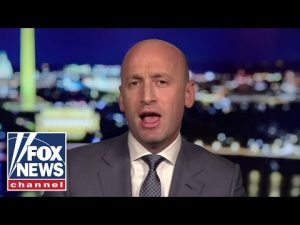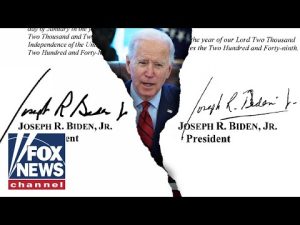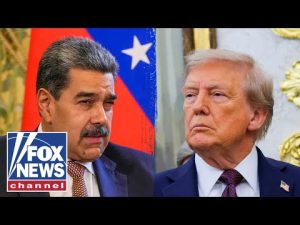In today’s America, the discussion around crime and public safety is more than just talking points for politicians. It directly affects the lives of everyday citizens, particularly in cities like Chicago, which has seen a troubling rise in violent crime. Last year alone, the city recorded 574 murders. This raises crucial questions: is there truly a crime emergency, and if so, what role should the National Guard play in combating it? On one end of the spectrum, some advocate for military assistance to quell the violence, while others—falling firmly on the side of limited government intervention—argue that deploying troops on the streets could be more damaging than helpful.
While it’s important to recognize that crime rates are a serious concern, dismissing the reality of these rising numbers can be detrimental. Some voices, even within the media landscape, may suggest that crime in Chicago isn’t an emergency, attempting to downplay the urgency of the situation. However, anyone acquainted with the streets and neighborhoods affected knows that such attempts at minimization fall flat. The issue is not just statistics; it’s about lives disrupted and communities living in fear. On a rhetorical level, any arguments claiming there’s no emergency in Chicago will find themselves outmatched by the stark truth of the increasing violence.
Critics of government intervention often pocket the idea that a “lock box” exists for resources intended for social and public safety initiatives. In a perfect world, these funds would be securely set aside for emergency situations. However, as one political commentator pointed out, this isn’t merely about doling out a check. The system—unfortunately—often involves borrowing against future security to prop up current needs. And this shifting of funds raises legitimate concerns about the priorities of our public officials. Are they more concerned about being re-elected than safeguarding citizens? The debate becomes even murkier when factored with the convoluted public safety budgets, which are often mismanaged or misdirected.
Amidst this chaos, it’s important to recognize the progress the nation has made overall. Many argue that America today provides opportunities for all, particularly for previously marginalized groups. It is essential to appreciate advancements without glossing over the issues still present. If someone were to parachute into the U.S. from another country, they might indeed be amazed at the level of freedom, prosperity, and opportunity available here. But we cannot allow this marvel to blind us to the pressing issues at our doorstep.
In conclusion, it is both possible and necessary to acknowledge the positive strides made while addressing the challenges that remain, especially in urban centers facing escalating crime. A balanced perspective allows for a rational dialogue on public safety, weighing the benefits of government measures against the downsides of military intervention. While the shortcomings of policymakers compel scrutiny, citizens must also feel empowered to demand better safety solutions that resonate with their experiences. A stronger America means ensuring the security of every community, which in turn enhances freedom and opportunity for all.







